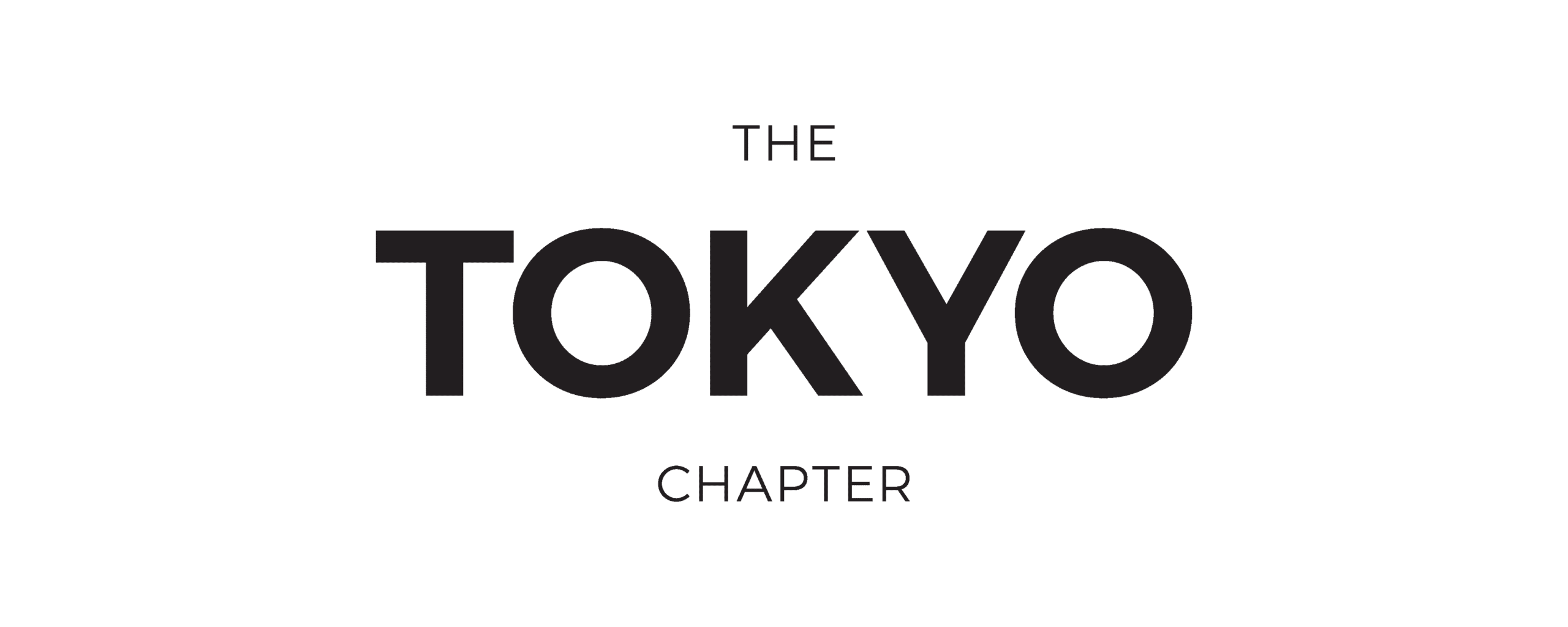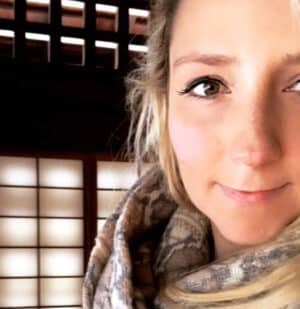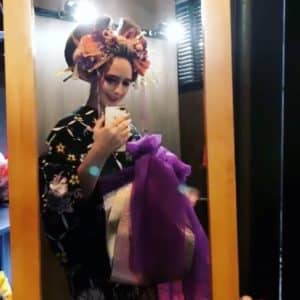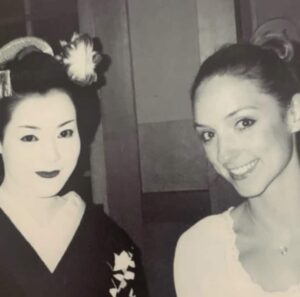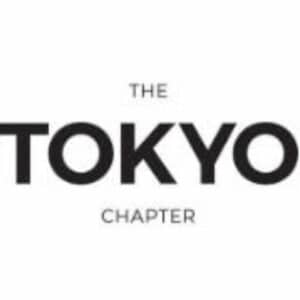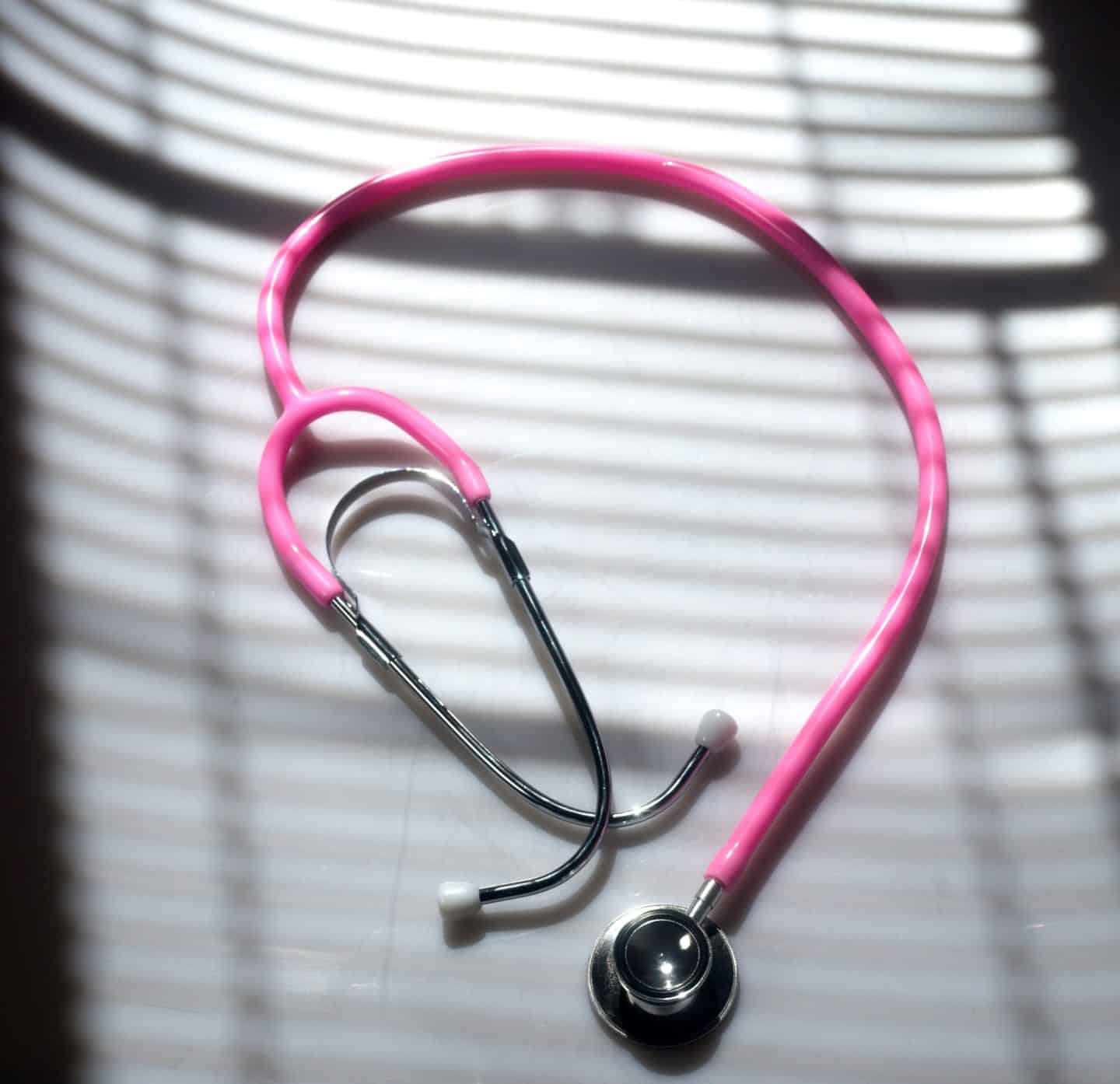
EMERGENCY MEDICAL HELP FOR YOUR CHILD
IF YOUR CHILD IS SICK IN TOKYO / HOW TO CALL AN AMBULANCE / GOING TO THE ER /GOING TO THE A&E IN JAPAN
How to get assistance quickly.
How to call an ambulance.
What to do first.
Ok. I’ve had a lot of questions about this but I also see people, who aren’t familiar with the systems in place make mistakes … and that means that they don’t get the care they need as quickly.
In case you’re reading this article in a hurry :
DO NOT DRIVE OR TAKE A TAXI STRAIGHT TO AN EMERGENCY ROOM / HOSPITAL.
Going directly to the ER is not how it works in Japan.
You will actually make it MORE difficult for a medical practitioner to assist you.
What SHOULD you do then?
1. HAVE RECEPTION CALL AN AMBULANCE OR DOCTOR FOR YOU.
*If you’re at a hotel with a reception desk get their help immediately as they will have the protocol in place AND, of course, no language barrier. IF you don’t feel you are getting the support you need it can’t help to also call out yourself at the same time but I really encourage on you being with, carrying for and advocating for your child the whole time. You know what they need, what is normal/ not normal, how to reassure your child best.
If your hotel has a concierge or reception desk I believe that you MUST let them call and sort out an ambulance or doctor on your behalf.
The system is different here .
Reasons to have a Japanese-speaking staff member** call / arrange for you:
- it takes the panic out of the situation as you will, understandably, be emotional and concerned
- they will know how to explain their own hotel’s location easily, including back or side entrances, one way street information, big landmarks close by etc.
- they will have called for Medical Assistance on someone else’s behalf before. They have experience with all of the protocol.
- you can then focus on your child while you wait for assistance
If, for some reason, they don’t understand…
the Japanese word for Ambulance is kyuukyuusha ( pronounced like Queue-Queue-sha )
Or you can show them this 救急車
* Having a receptionist in Japan who can assist in these types of scenarios, because of the language barrier, is a huge bonus and something to weigh up when deciding between Airbnb and Hotels in Japan. Especially if you are feeling particularly anxious about the possibility of a medical emergency while travelling abroad. Hotels in Japan can be expensive but this is one part that is a real pay-off.
**Always try and get help with calling, even when out and about. Ask a department store assistant, a police officer, a station master, ticket attendant, staff member at Disneyland. etc ( for the same reasons as I listed above.)
2. IF YOU HAVE TO CALL AN AMBULANCE YOURSELF
IS IT AN EMERGENCY ?
FOR E.G. CHILD NOT BREATHING?
CALL AN AMBULANCE.
DON’T LOOK THRU YOUR TRAVEL INSURANCE BROCHURES. DON’T GOOGLE TRANSLATE.
CALL AN AMBULANCE.
CALL 119
* Easy way to remember? 911 backwards*
Say that you need an ambulance, the Japanese word for Ambulance is kyuukyuusha ( pronounced like Queue-Queue-sha )
- Give your address slowly and clearly.
If you address is GREEN PALACE 409, 3-3-8 SAKURA, CHUO-KU
To make it as clear as possible, I would forget the building name and apartment number until the end.
Say
“3-3-8 SAKURA, CHUO-KU .
Building name: GREEN PALACE
Room number 409”
It is handy to also give a couple of landmarks if you can think of any. For eg. Next to 7-Eleven. Across from the baseball field. The building is red.
- Provide your phone number
- Hear sirens?
Go to meet them outside, if possible.
I know this sounds obvious but, when in a panic, take your English right back to basics. I speak more about how to communicate best and quickly in Japan in English in this blog post here but the basic rundown here is:
– many Japanese people can read and write English but cannot converse. For this reason – write it down if communication isn’t going well.
-take out all the wordy words of your sentences. Focus on the key nouns and verbs and that is it. If you were a new language learner, these are the key words you would be listening out for too. Eg. Don’t say ” I think we might need to go to hospital. My son has some allergies and might be having a reaction…” instead go straight to ” I need a hospital OR I need an ambulance OR My son is very sick”
Start with a phrase like that. You want to make sure this request is more urgent than any other request they could possibly have that day.
The paramedics will choose the hospital based on your child’s condition and your location. You cannot nominate a particular hospital.
Japanese ambulances are free – regardless of your nationality – however, you will be responsible for the medical costs once at the hospital (of course.)
3. IF YOU NEED TO VISIT A HOSPITAL BUT IT’S NOT A MEDICAL EMERGENCY THAT CALLS FOR AN AMBULANCE?
You will need to call ahead to find out which hospital can help you on that particular day, at that particular time.
As I say above DO NOT just drive to a random hospital.
You will most likely be told that they are unable to help you at that location.
Doctors are specialized in Japan and the hours at different locations vary.
Even if you don’ t like this idea… trying your own way will NOT make your issue any easier.
Most hospitals in Japan DO NOT accept walk-ins. It is a different system.
- Between 9am- 8pm – Call the Tokyo Metro Health & Medical Information Centre.
Phone number 03-5285-8181
They can assist you in English, Chinese, Korean, Thai or Spanish
What will they do?
They will tell you which hospital has doctors available to assist now, where that hospital is, they will also phone ahead and let the hospital know that you are coming and inform them of many of the details. - Before you leave for that hospital make sure that you have :
– your passport
– your travel documents
– any medication your child is currently taking
– your cards and cash
- Weekdays 5pm – 8pm & Weekends and Holidays 9am-8pm, you can also make use of Emergency Translation Services
Phone number 03-5285-8185 ( you can also use this service while in a hospital if you are having any communication concerns )
They can assist you in English, Chinese, Korean, Thai or Spanish over the phone.
**Now ….this is something that irks me to no end and makes me want to cry BUT some hospitals in Japan will not let you stay with your child when they are being checked by a doctor in an emergency (or for routine surgeries) in Japan. It makes me so mad that I want to scream! I am in the middle of compiling a list of hospitals that do allow parent and child to stay together no matter what but at the moment the only hospitals I know for sure are:
*The Aiiku Hospital in Minato-ku are fab at letting parents stay with their children
*As are the Hikarigaoka Hospital in Nerima (next to the Warner Bros Harry Potter Studio Tour, Tokyo) – they allow parents to stay with children for scheduled overnight stays and medical emergencies- although you do need to request a private room (so it is depends on availability.)
*The National Centre for Child Health and Development in Setagaya-ku is also find with parents staying overnight with their children as long as they have private rooms available.
* Tokyo Iryo Centre in Setagaya-ku have also been known to let parents stay with their children (if overnight, on a pull out bed in the child’s room.)
* St Luke’s Hospital have been known to sometimes let parents stay with their children
PLEASE NOTE: This doesn’t mean all other hospitals won’t allow this but it does mean that I’m gathering more info as I go.**
4. IF THE DOCTOR’S APPOINTMENT CAN WAIT UNTIL THE MORNING?
Personally, I always recommend Tokyo Medical and Surgical Clinic (it’s just across the road from Tokyo Tower).
The staff here speak English (many are native English speakers). A standard appointment usually costs around 12,000 yen and you can claim it back on travel insurance later.
Here are other addition options: Here is a list of English Speaking Medical Clinics ( list is here) and setting up an appointment at the earliest time available.
When making the booking , ask for payment methods that are accepted and any questions you have about your healthcare plan or travel insurance .
If you are in other parts of Japan and if your medical concern for your child isn’t urgent – I recommend waiting until you are in Tokyo to see a doctor, if you can. The reason for this recommendation? Just because there are more native english speaking and fluent english speaking doctors in Tokyo compared to other parts – and also more doctors who are more flexible when it comes to prescribing more familiar looking medicines (some Japanese meds are in powder form which are hard to give to children who aren’t used to this type of thing.) Please do not misunderstand me – there are excellent doctors all over Japan. If your child requires urgent medical help – please seek your closest option. However, for example, if you are in Hiroshima for 1 more day and then moving to Tokyo and it’s for a sore throat or cough- perhaps make an appointment for Tokyo Medical and Surgical Clinic once you arrive.
Non-urgent Medical assistance:
If you are looking for a type of doctor for a specific day, you can also call the Tokyo Metropolitan Health & Medical Information Centre on 03 5285 8181.
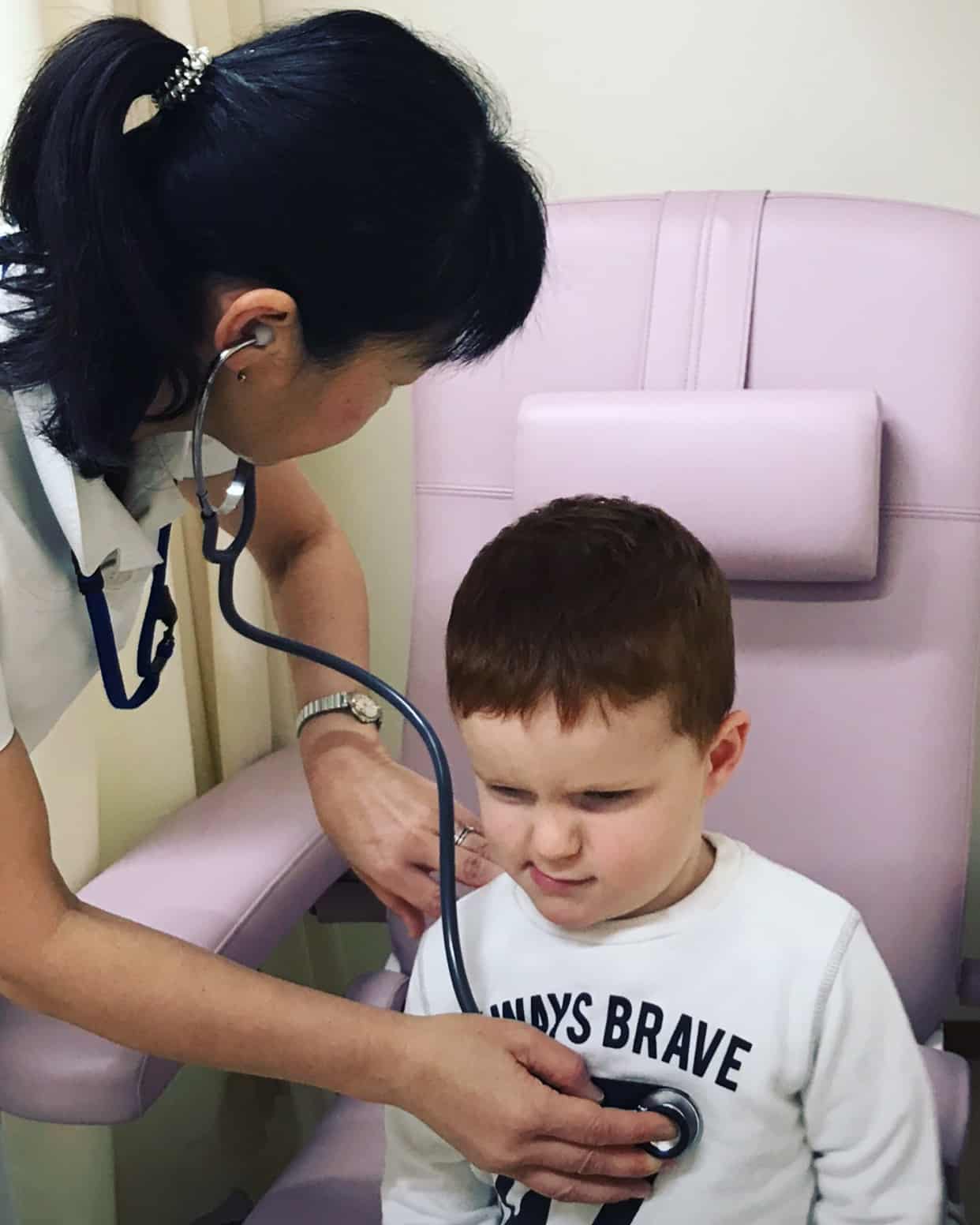
5. IF YOU NEED A 24 HOUR DRUGSTORE IN TOKYO
Welcia in Nihonbashi 1 Shop (Website is in Japanese but that makes it easier to just show to a cab driver)
Tsuruha Drug, Shirokanedai (Website is in Japanese but that makes it easier to just show to a cab driver)
Here is a brief guide on over the counter medicine in Japan, written by me.
If you need a chemist that is open everyday of the year ( and ALMOST 24 hours) I recommend visiting Jounan Pharmacy in Azabu-juban/ Mita – just 3 minutes walk from the Australian Embassy. It is open from 9:30AM – 4AM the following day.
Please, please make sure you have travel insurance lined up before you travel. You just never know when you may need emergency medical help for your child. However, please don’t think about travel insurance in an emergency. Focus on the issue first. Sort the paperwork later.
ANOTHER TIP: It’s not 100 % reliable BUT the “Google Translate” app allows you to press on the microphone and speak into it. This can be handy when communication isn’t going well or if there is a medical term that needs to be passed on quickly, this can be very, very useful.
If talking about a type of medicine remember to use the type of medication not the brand name as it may not be familiar world wide.
If you are in the Minato ward district in Tokyo you can call the International Assistance Desk at Tokyo Takanawa Hospital in Shinagawa. The phone number is +81 (0) 3-3443-9193 (if calling from a local phone 03-3443-9193
If you are looking for emergency tips for Earthquakes so our family plan here.
See here if you require information on taking ADHD medication into Japan.
So where to start my research on what medication is and isn’t allowed in Japan?
–The Ministry of Health, Wealth and Labour of Japan website
–The Narcotics Department website Japan page
–The Japan Travel: Bringing Medicines into Japan page
–The Smart Traveller website
*I thought most people would know this already but I did have to explain to someone recently that you CANNOT bring cannabis oil into Japan. So if it says THC on it – it’s automatically a hard no. Cannabis/Marijuana/Hemp are all illegal in Japan – in any form (including gummies, oil, cookies.) Opioids, adderall and epinephrine are illegal in Japan as well.
If you need an English-speaking dentist in Osaka, I recommend Kono Dental in Osaka – ask your hotel to make an appointment for you on your behalf.
